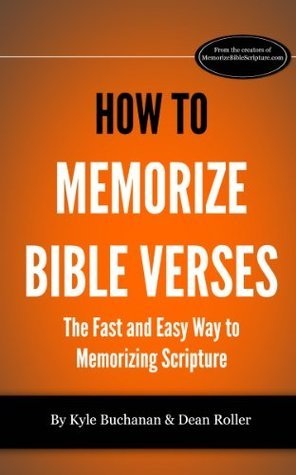…[He then gives a chart of words and corresponding images]... Now...in some respects I understand that there are different types of learners: audio learners, visual learners, etc. And if that’s truly the case, then this book probably most appeals to visual learners. And it really may prove to be a good mechanism for learning the exact wording of a particular translation of Scripture. But at the same time we must remember that it’s our obligation as Christians to have a Biblical mindset of ethics in all aspects of life (1 Cor. 10:31). And so just because we can do something doesn’t mean we should (1 Cor. 10:23-24). For instance, are the exact words of a particular translation the main point of Scripture, or is the exact meaning of God’s Word the important thing? Now of course I’m going to uphold that the exact words are important in the original autographs (Mt. 5:18; Jn. 10:34-25; Gal. 3:16). Yet at the same time, we see that those exact words (in the original autographs) give a particular meaning to the text, ameaning which seems to have the priority in Scripture. For instance, while the authors of the New Testament sometimes quote from the Hebrew, they also felt free to quote from the Septuagint when the meaning of the original Hebrew was still preserved; and other times used their own translations or allusions of the original while keeping the meaning intact. (See this article by Roger Nicole for a more in-depth look at this) However, if one uses this methodology for memorizing Scripture I’m not really sure the outcome would be that of hiding the Scriptures in your heart so as not to sin against God (Ps. 119:11), or so that you might be able to encourage and teach others (Col. 3:16). Perhaps that could be the end result. But it seems the more likely result is that you remember a bizarre story so that you can get the exact word order of a particular translation just right. And I don’t see how that is useful or even Biblical. One casual remark by the author I found disturbing regarding this thought was when he said: A good way to check if you’ve done this effectively is to see if you can recite the key words backwards. Start with the final image in the story and rewind through your mental movie. There is little practical benefit in being able to recite Bible verses backwards, but I suppose everyone needs a party trick. Yes, I “suppose” the Bible was inspired and preserved so that we could have a “party trick.” Another unbiblical principal that comes out in the author’s seemingly too-casual approach to Scripture is the following: It’s obviously important being able to reference what Bible verse you are quoting. You lose street cred when you recite a verse and then say "That’s from the Bible … somewhere." First of all - street cred? Seriously? Secondly, I believe the author of Hebrews would beg to differ - Hebrews 2:6: “It has been testified somewhere...” (emphasis mine) and then he goes on to quote from Psalm 8. Obviously the reference system is helpful, but it’s certainly not necessary for the purposes of knowing God’s Word. All in all, while I'm sure this book provides a useful method of memorizing exact word order for a particular translation, I personally don’t see how just understanding the meaning of the text won’t help you memorize it even more (and have a much deeper appreciation for it) than making up some bizarre (and I would even say somewhat irreverent) story so that you can get the exact translation-specific word order and reference spot on so that if all else fails you can use that knowledge as a party trick. To me, it just seems a far cry from, and nothing what the apostle meant when He said, “Let the word of Christ dwell in you richly, teaching and admonishing one another in all wisdom…” (Col. 3:16). (1) That's right. Linda Evangelista. An unbelieving supermodel who has had multiple lovers out of wedlock and coined the phrase: "We don't wake up for less than $10,000 a day." Now certainly we can pray for her salvation and sanctification from the same Holy Spirit who gave us and gives us ours. But is it really a good idea to use her as an image when thinking of the word translated in English Scripture as "evangelist"?
|
Categories
All
|
